#governance
Text
Former US Intelligence Agent David Grusch says under oath that the US government is in possession of UFOs and non-human biologics. (Via: PopCrave)
#paranormal#phenomena#aliens#alien#ufo#ufos#videos#video#uaps#uap#gov#government#governance#usa#united states#us#locations#pps#paranormalphenomenas#documents#documentation#document#documentary#2000s#2020s#2023#phenomenas
382 notes
·
View notes
Text
The Collective Intelligence Institute
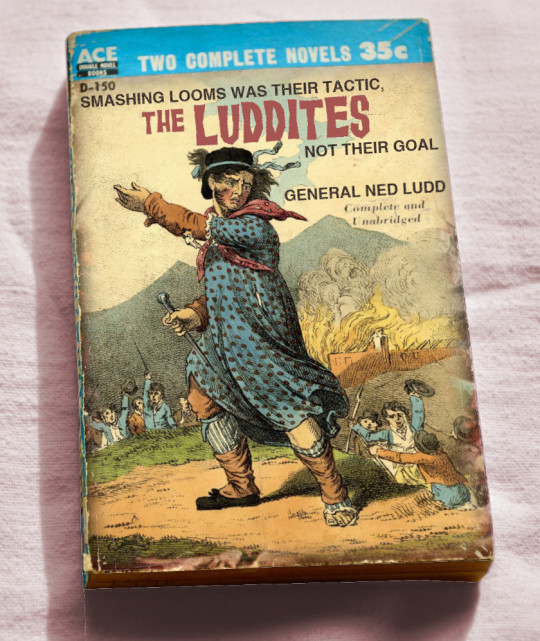
History is written by the winners, which is why Luddite is a slur meaning “technophobe” and not a badge of honor meaning, “Person who goes beyond asking what technology does, to asking who it does it for and who it does it to.”
https://locusmag.com/2022/01/cory-doctorow-science-fiction-is-a-luddite-literature/
If you’d like an essay-formatted version of this post to read or share, here’s a link to it on pluralistic.net, my surveillance-free, ad-free, tracker-free blog:
https://pluralistic.net/2023/02/07/full-stack-luddites/#subsidiarity
Luddites weren’t anti-machine activists, they were pro-worker advocates, who believed that the spoils of automation shouldn’t automatically be allocated to the bosses who skimmed the profits from their labor and spent them on machines that put them out of a job. There is no empirical right answer about who should benefit from automation, only social contestation, which includes all the things that desperate people whose access to food, shelter and comfort are threatened might do, such as smashing looms and torching factories.
The question of who should benefit from automation is always urgent, and it’s also always up for grabs. Automation can deepen and reinforce unfair arrangements, or it can upend them. No one came off a mountain with two stone tablets reading “Thy machines shall condemn labor to the scrapheap of the history while capital amasses more wealth and power.” We get to choose.
Capital’s greatest weapon in this battle is inevitabilism, sometimes called “capitalist realism,” summed up with Frederic Jameson’s famous quote “It’s easier to imagine the end of the world than the end of capitalism” (often misattributed to Žižek). A simpler formulation can be found in the doctrine of Margaret Thatcher: “There Is No Alternative,” or even Dante’s “Abandon hope all ye who enter here.”
Hope — alternatives — lies in reviving our structural imagination, thinking through other ways of managing our collective future. Last May, Wired published a brilliant article that did just that, by Divya Siddarth, Danielle Allen and E. Glen Weyl:
https://www.wired.com/story/web3-blockchain-decentralization-governance/
That article, “The Web3 Decentralization Debate Is Focused on the Wrong Question,” set forth a taxonomy of decentralization, exploring ways that power could be distributed, checked, and shared. It went beyond blockchains and hyperspeculative, Ponzi-prone “mechanism design,” prompting me to subtitle my analysis “Not all who decentralize are bros”:
https://pluralistic.net/2022/05/12/crypto-means-cryptography/#p2p-rides-again
That article was just one installment in a long, ongoing project by the authors. Now, Siddarth has teamed up with Saffron Huang to launch the Collective Intelligence project, “an incubator for new governance models for transformative technology.”
https://cip.org/whitepaper
The Collective Intelligence Project’s research focus is “collective intelligence capabilities: decision-making technologies, processes, and institutions that expand a group’s capacity to construct and cooperate towards shared goals.” That is, asking more than how automation works, but who it should work for.
Collective Intelligence institutions include “markets…nation-state democracy…global governance institutions and transnational corporations, standards-setting organizations and judicial courts, the decision structures of universities, startups, and nonprofits.” All of these institutions let two or more people collaborate, which is to say, it lets us do superhuman things — things that transcend the limitations of the lone individual.
Our institutions are failing us. Confidence in democracy is in decline, and democratic states have failed to coordinate to solve urgent crises, like the climate emergency. Markets are also failing us, “flatten[ing] complex values in favor of over-optimizing for cost, profit, or share price.”
Neither traditional voting systems nor speculative markets are up to the task of steering our emerging, transformative technologies — neither machine learning, nor bioengineering, nor labor automation. Hence the mission of CIP: “Humans created our current CI systems to help achieve collective goals. We can remake them.”
The plan to do this is in two phases:
Value elicitation: “ways to develop scalable processes for surfacing and combining group beliefs, goals, values, and preferences.” Think of tools like Pol.is, which Taiwan uses to identify ideas that have the broadest consensus, not just the most active engagement.
Remake technology institutions: “technology development beyond the existing options of non-profit, VC-funded startup, or academic project.” Practically, that’s developing tools and models for “decentralized governance and metagovernance, internet standards-setting,” and consortia.
The founders pose this as a solution to “The Transformative Technology Trilemma” — that is, the supposed need to trade off between participation, progress and safety.
This trilemma usually yields one of three unsatisfactory outcomes:
Capitalist Acceleration: “Sacrificing safety for progress while maintaining basic participation.” Think of private-sector geoengineering, CRISPR experimentation, or deployment of machine learning tools. AKA “bro shit.”
Authoritarian Technocracy: “Sacrificing participation for progress while maintaining basic safety.” Think of the vulnerable world hypothesis weirdos who advocate for universal, total surveillance to prevent “runaway AI,” or, of course, the Chinese technocratic system.
Shared Stagnation: “Sacrificing progress for participation while maintaining basic safety.” A drive for local control above transnational coordination, unwarranted skepticism of useful technologies (AKA “What the Luddites are unfairly accused of”).
The Institute’s goal is to chart a fourth path, which seeks out the best parts of all three outcomes, while leaving behind their flaws. This includes deliberative democracy tools like sortition and assemblies, backed by transparent machine learning tools that help surface broadly held views from within a community, not just the views held by the loudest participants.
This dovetails into creating new tech development institutions to replace the default, venture-backed startup for “societally-consequential, infrastructural projects,” including public benefit companies, focused research organizations, perpetual purpose trusts, co-ops, etc.
It’s a view I find compelling, personally, enough so that I have joined the organization as a volunteer advisor.
This vision resembles the watershed groups in Ruthanna Emrys’s spectacular “Half-Built Garden,” which was one of the most inspiring novels I read last year (a far better source of stfnal inspo than the technocratic fantasies of the “Golden Age”):
https://pluralistic.net/2022/07/26/aislands/#dead-ringers
And it revives the long-dormant, utterly necessary spirit of the Luddites, which you can learn a lot more about in Brian Merchant’s forthcoming, magesterial “Blood In the Machine: The Origins of the Rebellion Against Big Tech”:
https://www.littlebrown.com/titles/brian-merchant/blood-in-the-machine/9780316487740/
This week (Feb 8–17), I’ll be in Australia, touring my book Chokepoint Capitalism with my co-author, Rebecca Giblin. We’ll be in Brisbane tomorrow (Feb 8), and then we’re doing a remote event for NZ on Feb 9. Next are Melbourne, Sydney and Canberra. I hope to see you!
[Image ID: An old Ace Double paperback. The cover illustration has been replaced with an 18th century illustration depicting a giant Ned Ludd leading an army of Luddites who have just torched a factory. The cover text reads: 'The Luddites. Smashing looms was their tactic, not their goal.']
#pluralistic#ai#artificial intelligence#b-corps#collective intelligence#full-stack luddism#full-stack luddites#governance#luddism#ml#sortition#subsidiarity
621 notes
·
View notes
Text
Fantasy Worldbuilding Questions (Governance)
Governance Worldbuilding Questions:
What forms of governance exist (do they differ by region)? For example, monarchy, democracy, tyranny, oligarchy, anarchy.
What is the biggest threat to stable government in your world?
Who is the most loved leadership figure (or the most hated and feared) and why?
Who governs key parts of your world (e.g., this may be the pilot of a spaceship in a sci-fi story)? Will the head honcho change?
Where are the major centers of power and administration in your world, and why are they located in these places?
Where are laws and policies enforced the most, and where is the long arm of the law weakest?
When were the laws that most affect your characters passed? Are there any troubling ones on the ballots?
When did this world’s current system of government or political system come into existence, and what were the historical and cultural factors that led to its formation?
Why do characters either support or resist the government? In what ways it is benevolent or abusive?
Why do individuals or groups hold power to govern? Is it a birth right system, an electoral one, or the result of a coup or other event?
❯ ❯ ❯ Read other writing masterposts in this series: Worldbuilding Questions for Deeper Settings
#writeblr#fiction writing#novel writing#writing tips#writing advice#writing#worldbuilding#writing research#fantasy fiction#fantasy writing#now novel#governance#fwq
35 notes
·
View notes
Text
Countries that are no more: Republic of Venice (697AD-1797AD)
The first in a series I hope to feature on providing high level overviews of countries that existed and were influential to history or obscure and lost to most memory in time. The first up is the Republic of Venice.
Name: Serenisma Republega de Venesia (Venetian). In English this translates to the state's official name The Most Serene Republic of Venice. Also referred to as the Venetian Republic, Republic of Venice or just Venice.
Language: The official languages were the Romance languages of Latin, Venetian & later Italian. The regional dialect of Vulgar Latin in Northeastern Italy known as Veneto was the original language of Venice. This evolved in Venetian which was attested to as a distinct language as early as the 13th century AD. Venetian became the official language and lingua franca of the everyday Venetians and across parts of the Mediterranean although Latin would still be used in official documents and religious functions. Overtime, modern Italian was spoken in Venice though the Venetian language remains technically a separate language in Italy's Veneto region and the surrounding areas to this day.
Minority languages across the republic's territory included various Romance languages such as Lombard, Friulian, Ladin, Dalmatian and non-romance languages such as Albanian, Greek & Serbo-Croatian.
Territory: The republic was centered on the city of Venice founded in the Venetian lagoon on the north end of the Adriatic Sea to the northeast coast of the Italian peninsula. It also included the surrounding regions of mainland northeast Italy in the regions of Veneto and Friuli and parts of Lombardy. This became known as the terraferma or the mainland holdings of the republic. It also possessed overseas holdings in modern day Croatia, Slovenia, Montenegro, Albania, Greece & Cyprus.
Symbols & Mottos: The main symbol of Venice was its flag which had the famed Winged Lion of St. Mark. This represented the republic's patron saint, St. Mark. Mark the Evangelist after whom the Gospel of Mark in the New Testament in the Bible is named. Mark's body and holy relics were taken by Venice and said to be housed in the Basilica di San Marco (St. Mark's Basilica) in Venice itself. Variations of this flag differed during times of peace & war. During peace the winged lion is seen holding an open book and during war flags depicted the lion with its paw upon a bible and an upright sword held in another paw.
The republic's motto in Latin was "Pax tibi Marce, evangelista meus" or in English "Peace be to you Mark, my evangelist."
Religion: Roman Catholicism was the official religion of the state but Venice did have minorities of Eastern Orthodox & Protestant (usually foreign) Christian denominations at times in its territory and it also had small populations of Jews and Muslims to be found in Greek and Albanian territories during the wars with the Ottoman Empire.
Currency: Venetian ducat and later the Venetian lira.
Population: Though population varied overtime for the republic due to a variety of factors such as war & changing territory and disease & its subsequent effects. There was rough population recorded of 2.3 million people across all of its holdings in the mid sixteenth century (circa 1550-1560). The vast majority of its population was found in the terraferma of northern Italy and the city of Venice itself with its concentrated population on the islands within the Venetian Lagoon. The Greek island of Crete and the island of (Greek speaking) Cyprus were the most populous overseas possessions of the republic's territory. The rest of the population was found its various holdings in the Balkans mostly along the Adriatic coastline.
Government: The republic followed a complex mixed model of government. Essentially it could be characterized as a mixed parliamentary constitutional republic with a mercantile oligarchy ruling over it in practice. It had no formal written constitution, and this led to a degree of evolution without exactly defined roles often in reaction to happenings in its history. The resulting government became more complex overtime as institutions became increasingly fragmented in their size, scope and duties, some almost obsolete but still retained and others not fully defined. Yet, the republic managed to function quite well for most of its history. It incorporated elements of oligarchy, monarchy & limited democracy.
It's head of state and government was known as the Doge which is akin to the term of Duke. Though this similarity of name ends there. The Doge was neither similar to a duke in the modern sense nor was it meant as a hereditary position. The doge was rather a lifetime appointment much like the Pope for the Roman Catholic Church. Furthermore, doges were elected by the ruling elite of Venice, namely its wealthy oligarchy merchant class. The doge didn't have well defined & precise powers throughout the republic's 1,100-year history. It varied from great autocracy in the early parts of the republic to increasing regulation and restriction by the late 13th century onward. Though the doge always maintained a symbolic and ceremonial role throughout the republic's history. Some doges were forcibly removed from power and post-1268 until a new doge could be elected, the republic's rule transferred to the most senior ducal counsellor with the style of "vicedoge". After a doge's death following a commission was formed to study the doge's life and review it for moral and ethical transgressions and placed judgment upon him posthumously. If the commission found the deceased doge to have transgressed, his estate could be found liable and subject to fines. The doge was given plenty of ceremonial roles such as heading the symbolic marriage of Venice to the sea by casting a marriage ring into the sea from the doge's barge (similar to a royal yacht). Additionally, the doge was treated in foreign relations akin to a prince. It's titles and styles include "My Lord the Doge", "Most Serene Prince" and "His Serenity". The doge resided in the ducal palace (Palazzo Ducale) or Doge's Palace on the lagoonfront in Venice next St. Mark's Basilica and St. Mark's Square.
While the doge remained the symbolic and nominal head of the government, the oligarchy remained supreme overall. The supreme political organ was the 480-member Great Council. This assembly elected many of the office holders within the republic (including the doge) and the various senior councils tasked with administration, passing laws and judicial oversight. The Great Council's membership post 1297 was restricted to an inheritance by members of the patrician elite of the city of Venice's most noble families recorded in the famed Golden Book. This was divided between the old houses of the republic's earliest days and newer mercantile families if their fortunes should attain them property ownership and wealth. These families usually ranged between 20-30 total. They were socially forbidden from marrying outside their class & usually intermarried for political and economic reasons. Their economic concerns were chief to the whole of the republic and most centered on Eurasian & African trade throughout the Mediterranean Sea's basin. Members of these families served in the military and eventually rose to prominent positions of administration throughout the republic.
The Great Council overtime circumscribed the doge's power by creating councils devoted to oversight of the doge or executive and administrative functions (similar to modern executive cabinets or departments) whereas the doge became more and more a ceremonial role. The also created a senate which handled daily legislation. They also created a Council of Ten set to have authority over all government action. Other bodies were formed from this Great Council and others overtime. This resulted in intricate and overlapping yet separate bodies which found themselves subject to limitations with various checks on virtually each other's power. Essentially running as committees or sub-committees with checks on another committee's powers. These bodies weren't always completely defined in their scope and overtime their complexity led to battles to limit other's power (with limited success) along with gradual obsolescence and sometimes slow grinding administration.
Military: The military of Venice consisted of a relatively small army and a powerful navy. The famed Venetian Arsenal in Venice proper was essentially a complex of armories and shipyards to build and arm Venice's navy. The arsenal in Venice has the capacity to mass produce ships and weapons in the Middle Ages, centuries before the Industrial Revolution allowed for modern mass production in economic and military applications. Venice's military was designed towards protecting it possessions both in Italy and its overseas territories. The primary concern was to secure Venice's trade routes to the rest of Europe as well as Asia & Africa. It faced opponents' overtime ranging from the Franks, the Byzantine Empire, Bulgarians to other Italian city-states, France, Austria, the Ottoman Empire and Barbary Corsairs along with European pirates in the Adriatic and Mediterranean. It played key roles as a naval transport in other powers including throughout the Crusades. It also played a key role in the infamous Fourth Crusade which culminated in the Sack of Constantinople in 1204 AD, an event which fractured the Byzantine Empire into a half-century of civil war between successor states before a weakened revival in the mid 13th century. The Byzantine Empire would linger until the 15th century when the Ottoman Empire finally conquered its last remaining portions. Many attribute this loss to in part to its weakness still resulting from that 1204 sack lead by Venice. The Venetian military would exist until the republic's end when The French Republic's Army of Italy under Napoleon Bonaparte conquered the republic, a conquest in which the Venetians surrendered without a proper fight.
Economy: Venice's economy was based largely in trade. Namely control over the salt trade. Venice was to control salt (preservative of food) production and trade throughout the Mediterranean. It also traded in commodities associated with the salt trade routes to Eurasia and Africa. These commodities could include other foodstuffs (grains, meats & cheeses), textiles & glassware among other items.
Lifespan: 697AD-1797AD. Though the exact founding of Venice itself hasn't been determined. It is traditionally said to have taken place in the year 421 AD. At a time when Roman citizens in northeast Italy were escaping waves of Germanic & Hunnic barbarian invasions that contributed to the collapse of the Western Roman Empire. The going theory is that these Romans evaded barbarian attacks by building their homes in the Venetian Lagoon by hammering wood stakes to form a foundation which sunk into the muddy shallows and petrified. Upon which they built their homes and created a cityscape marked by streets and canals interlaced. Venice remained a community of fishermen and merchants and was nominally under the control of the surviving Eastern Roman Empire (Byzantine Empire). It avoided barbarians overrunning the land but also was removed enough from Constantinople that it was relatively autonomous and became strategically important as a port. Other islands in the lagoon also banded together with Venice in a loose confederation of sorts by the 6th and 7th centuries which increased economic productivity and security for the city. The first doge was said to have been elected in 697 AD under the name Paolo Lucio Anafesto, though there is dispute about his historicity. Anafesto supposedly ruled until 717 AD. This is traditionally regarded as the foundation of the Republic of Venice.
Venice's third doge was Orso Ipato who reigned from 726-737 and he is the first undisputed historically recorded doge whose existence was confirmed. Orso also known as Ursus was known to strengthen the city's navy and army to protect it from the Lombard Germanic invaders who had overrun and ruled Italy by that time. Though nominally part of the Byzantine Empire, by 803, the Byzantine Emperors are said to have recognized Venice's de-facto independence. Though this view is disputed somewhat, it nevertheless remained virtually independent until its collapse in 1797.
Venice also partook in the slave trade of non-Christian European populations from Eastern Europe and transferred them to North Africa, selling them to the Arab and Berber (Moors) of the Islamic world.
As the 9th century progressed, the Venetian navy secured the Adriatic and various trade routes by defeating Slavic and Muslim pirates in the region. The Venetians also went onto battle the Normans who settled in southern Italy and Sicily in the 11th century.
Venice provided naval transports for Crusaders from Western Europe starting with the successful First Crusade.
The High Middle Ages (1000AD-1350AD) saw the wealth and expansion Venice increase dramatically. However, over this period Venice gradually came into mixed relations with its former ruler the Byzantine Empire. The Byzantine Empire endured corruption, civil war and foreign invasion which saw it alternate between periods of waning power and restored power. Venice provided the Byzantines with an increased naval force when needed and many trading commodities. In exchange for this, Venice was granted trading rights within Byzantine territory and a place within the "Latin Quarter" for Western Europeans in Constantinople. The Byzantine populace though calling themselves "Romans" having taken on the political & cultural institutions of the Roman Empire which lived on in the East long after the Western half's collapse, were in fact mostly Greek by ethnicity, language and culture. Their religion was the Eastern Orthodox or Greek Orthodox branch of Christianity which was often at odds with Roman Catholics of Western Europe. Resentment at the religious and cultural differences along with the economic displacement the Venetians and other Italian merchants from Genoa & Pisa had caused in Constantinople's maritime & financial sectors contributed to the 1182 "Massacre of the Latins" in which the Byzantine Greek majority of the city rioted and slaughtered much of the 60,000 mostly Italian Catholics living within the city. Thousands were also sold into slavery to the Anatolian Seljuk Turks.
This event lingered in Venice's memory as its trade in the city was reduced for awhile. Though trade resumed between the Byzantines and the West again shortly thereafter, the event soured the perception of the Greeks to Western Europeans. This along with a subsequent power struggle for the throne of the Eastern Roman Emperor fell into Venice & Western Crusader's hands in 1202. Looking to originally ferry Western Crusaders to the Levant against the Islamic Ayyubid Sultanate of Egypt & Syria. Events transpired that devolved into Venice conspiring under its doge Enrico Dandalo along with other Western leaders and a Byzantine claimant to the throne that resulted in the first successful sacking of Constantinople in 1204. The city was ransacked, some Greek citizens murdered by the Crusaders & classical works of art destroyed or looted (most famously the four bronze horses of St. Marks in Venice) and politically, the Byzantine Empire would be temporarily fractured between competing Greek dynasties while the Crusaders along with Venice created the short-lived Latin Empire, which controlled Constantinople and its environs while Venice also acquired Greek territories which it was to hold for centuries. Venice also came into conflict with the Second Bulgarian Empire at this time as its support of the Latin Empire of Constantinople encroached on the Bulgarian's land. Eventually by the mid 13th century the Latin Empire (never fully stable) collapsed, and the Byzantine Empire was restored until the mid-15th century but forever weakened as a result of the 1204 sacking of its capital.
Venice reached trade deals with the Mongol Empire in 1221. As the century wore on, it also engaged its rival in Western Italy Genoa in some warfare.
The 14th century is generally regarded as Venice at its peak as it faced down Genoa in a number of battles and came to be the most dominant trading power in the Mediterranean, though it was impacted by the Black Death plague. Nevertheless, into the 15th and even 16th centuries, it partook in a number of wars which saw it gain territory on the Italian mainland, establishing its terraferma domain.
By the 16th late 15th and into the 16th century new threats had emerged such as the Turkish Ottoman Empire. The Ottoman capture of Constantinople in 1453 is seen as the end of the Middle Ages as the last political vestiges of the Roman Empire vanished from the world stage. However, a number of Byzantine Greeks escaped on Italian ships during the conquest of the city and others escaped Greece in subsequent years. These refugees brought with them artistic and cultural heritages that reemphasized the classical forms of Ancient Greece and Rome and lead to the Italian Rennaisance in art & other forms of culture. Ideas which emphasized humanism and spread to elsewhere in Europe overtime.
While there was a cultural flourishing in Venice and elsewhere due to the Rennaisance. There was also the first signs of economic and political decline as well from the 16th century onwards. The Ottoman dominance in the Eastern Mediterranean meant the traditional trade routes to the East were cut off by an often-hostile Muslim power. Additionally, other maritime powers in the West namely Spain & Portugal had recently begun exploring the continents of South & North America and in time France, England & the Netherlands would join in them. This decline in Eastern trade and the newfound trade routes dominated by other European states in the Americas and Asia (by way of rounding Africa) would render trade with Venice gradually obsolete. Venice would still maintain what trade it could in the Mediterranean, but it also focused on production and placed increasing importance on its Italian mainland possessions rather than just its declining position overseas in Greek territories, including the loss of Cyprus to the Ottomans in 1571. Though the Venetian navy with other Christian powers won the notable naval victory against the Ottomans in 1570 at Lepanto.
It was also involved in the Italian Wars between various rival city states and the power struggle between the Papacy, France and the Hapsburg realms of the Holy Roman Empire and Spain.
Other factors that impacted the declining trade in the 17th century included an inability to keep up in the textile trade elsewhere in Europe, closure of the spice trade to all but the Spanish, Dutch, Portuguese, French and English and the Thirty Years War (1618-1648) which impacted Venice's trade partners.
Ongoing wars including a 21-year siege of Crete by the Ottomans saw further losses. Although Venice partook in the Holy League headed by the Holy Roman Empire (under Hapsburg Austria) which saw some minor temporary gains from the Ottomans in southern Greece before losing them again in the early 18th century.
War and loss of overseas territories along with a stagnant economy was slightly offset by a somewhat strong position in northern Italy. Nevertheless, its maritime fleet was reduced to a mere shadow of its former glory and it found itself sandwiched still between Austria and France. Over the rest of the 18th century, economic stagnation and social stratification remained prevalent while Venice remained in a quiet peace. However, the French Revolution reignited war in Italy and while Venice remained neutral, it would soon get caught up in events.
The Austrians and the Piedmontese (Italian) allies were beaten by the French Republic's Army of Italy headed by an up-and-coming general named Napoleon Bonaparte. Bonaparte and the French army crossed the borders of northern Italy into Venetian neutral territory to pursue the Austrians. Eventually half of Venice's territory was occupied by France and the remainder of the mainland was occupied by Austria. By secret treaty the French and Austrians were to divide the territory between themselves (Venice was consulted in the matter). Bonaparte gave orders to Venetian doge Ludovico Manin to surrender the city to French occupation to which he abdicated his power. The republic's Major Council met one last time to officially declare an end to republic on May 12th, 1797, after 1,100 years. Venice was placed under a provisional government and ironically the French looted Venice stripping it of artworks to grace the Louvre Museum in Paris along with the Arc d'Triomphe, taking the famed four bronze horses of St. Mark's to adorn the triumphal arch in Paris, the very same horses Venice had confiscated from Constantinople in 1204. It was a symbolic end to the republic, the irony of which did not escape commentators at the time. Following Napoleonic France's final defeat in 1815 the horses were returned to Venice and St. Mark's where they remain today. Venice itself was given over to the Austrian Empire.
The Republic of Venice has a historical legacy in terms of its economic accomplishments through control of trade and its innovative mass production of ships, armaments & trade commodities. It also holds a political legacy worthy of study given it was a unique and enduring polity for 1,100 years. One that maintained a complex and at times chaotic form of government that still managed to function and endure for centuries.
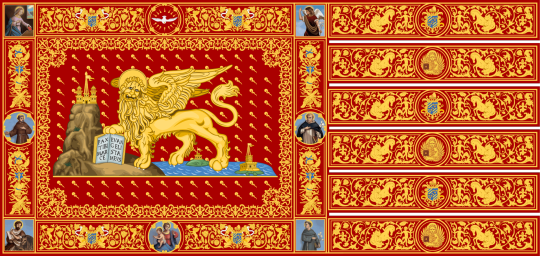
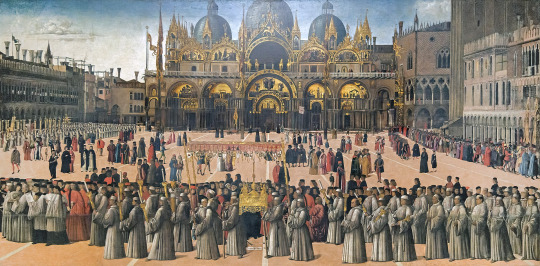
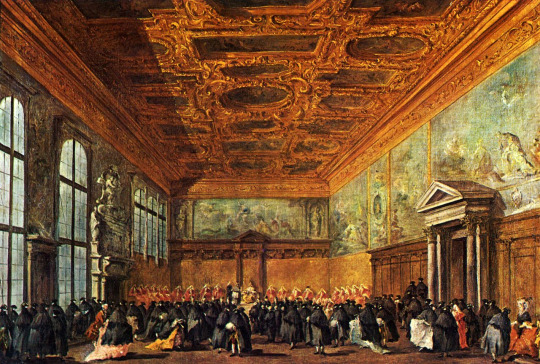
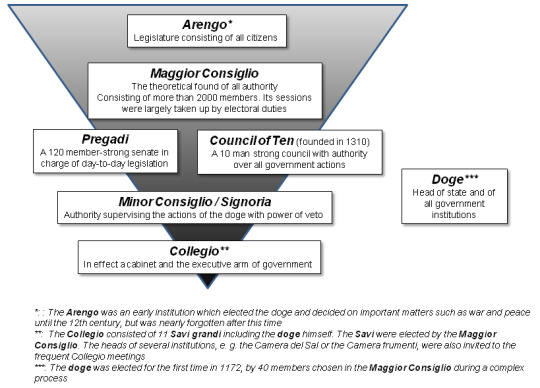
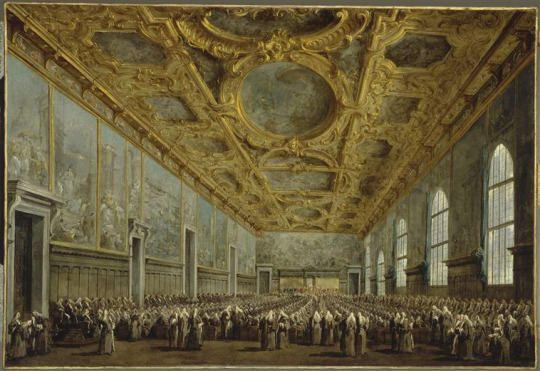
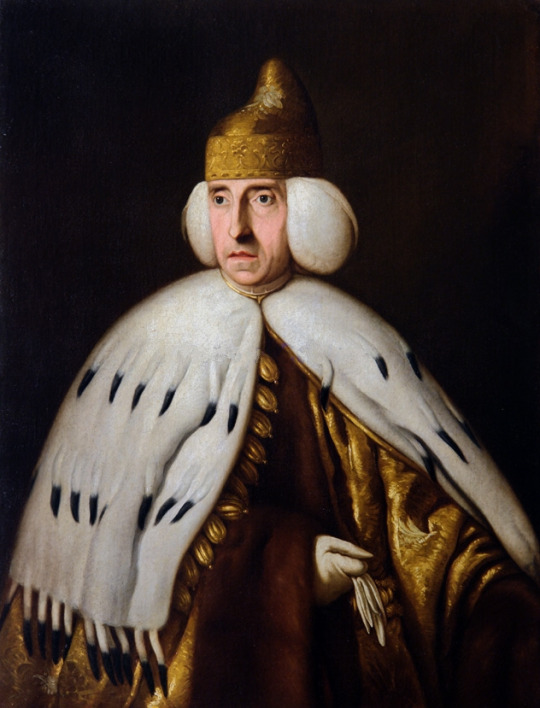
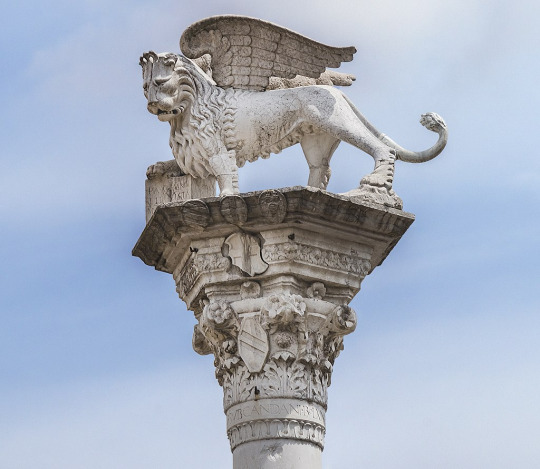

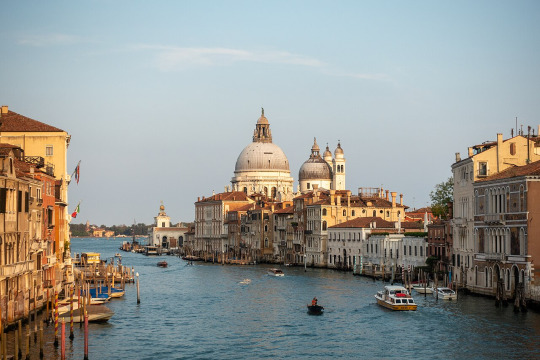
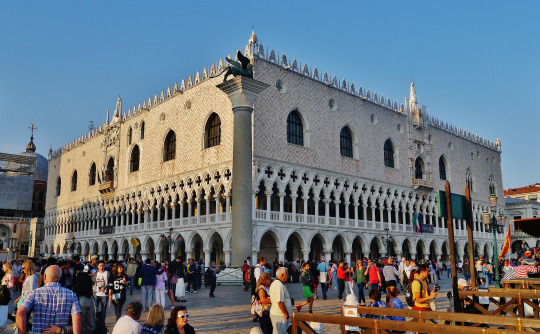
#military history#middle ages#venice#venetian republic#italy#politics#political history#trade#economics#governance#commerce#ottoman empire#spain#byzantine empire#napoleon#doge#republic
61 notes
·
View notes
Note
I'm a bit confused about the child abuse post (only at this one part), when you say parents "ensure all [their kids'] communications are controlled" does that mean taking away their electronics or monitoring their internet access, because I usually see people advocate for the second one because it's the parents "preventing abuse" from people on the internet
sorry if you're getting bombarded with questions, I know the sarcasm doesn't always get picked up well textually but so far it doesn't seem too bad at least
Let me start by saying that I wrote that post quickly and intentionally a little vague, never expecting it to get popular, so if people are seeing different things in the post its probably because it's written vaguely.
That said, the specific thing I was vaguely responding to wasn't parents at all, but society as a whole. Society excludes children (or unaccompanied children, which has much the same effect) from using services or being in public places, often with the good intention of protecting them from abusive strangers in those places, but the effect of that exclusion is that children are isolated and hence more vulnerable to the much more common abuse by family members and official authority figures.
Which is not to say there should be *no* rules about where children should be allowed to go and what they're allowed to do. But it's not enough to say "some child might possibly be abused in this space", you have to balance the risks of that against the very real damage caused by isolating children.
16 notes
·
View notes
Text
coastalcurmudgeon asked: Hi, would you mind pointing me towards any articles, books, video essays etc that make reasonable modern pro-monarchist arguments? When queen Elizabeth passed a few months ago it got me wondering why not just the British but several other wealthy democratic nations hang on to their monarchs. I'm from the US so it's a little difficult to understand the monarchies perspective off the bat and you seemed a good person to ask about where to find good arguments for it. Thanks and have a nice day
I want to thank you for asking such a simple question but one that many of us don’t really give a thought to. We get sucked into the tittle tattle of court intrigue or the tawdry gossip of the latest royal scandal made public, partly because it’s a visceral pleasure to see those above us squirm in discomfort, and partly to see them bleed - perhaps to remind us that they are as mortal and as fallen as we all are.
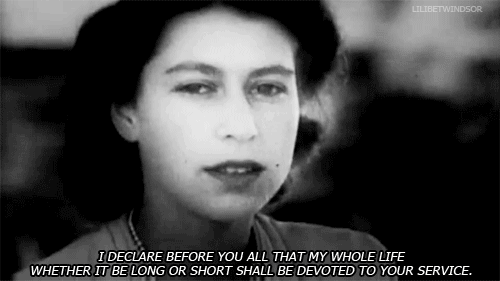
In the wake of Queen Elizabeth II’s death, the question of monarchy is brought sharply into focus. The sombre and reflective tone of the tributes to the late Queen Elizabeth II suggests the esteem in which she was held, as well as the apparent popularity of Britain’s constitutional monarchy. But it was not always so, as the queen herself was fully aware. She might have remained more or less beyond reproach, but her family-members have not. Often the Windsors seemed like a bad soap opera, attracting derision and resentment in equal measure. Yet, like their ancestors, they have slogged on regardless. Other monarchies have been toppled, or cut down to size, all over Europe and beyond.
We focus on the institution and its rituals and trappings without asking the underlying question of why? Why do we believe in the institution? It’s a question that even ardent monarchists find hard to answer properly.
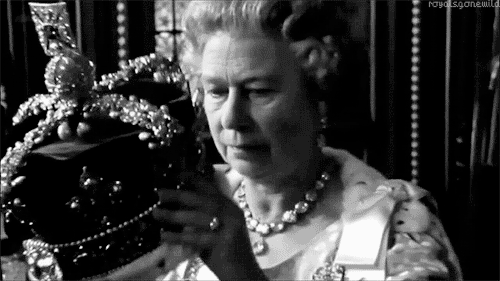
The hard leftists of course do know why they want to get rid of a monarchy in the name of some vague and unrealised ideal of equality and freedom from tyranny as well in the name of democracy. They do so out of historical ignorance given that the constitutional monarchy does exactly that and has been paradoxically a guarantor of these ideals through custom, heritage, and the rule of common law. For them it’s better to destroy than it is to build as Roger Scruton once said. Being historically illiterate, they don’t fully understand the folly on pulling one thread runs the danger pulling the entire tapestry of a nation apart.
I don’t want to caricature all them with one brush because not all leftists believe in the destruction of the monarchy in Britain. Some understand its value and even harmonise it within their leftist beliefs.
Stephen Fry, a socialist in his political beliefs but still widely considered (and righty so) as a national treasure, came out in his support of the monarchy in Britain. The beloved British actor, writer and presenter admitted in a podcast with Jordan Peterson that the Royal Family in interviews that “on the face of it is of course preposterous”. But he went on to explain how they can play a key role in society. The author referred to the Queen’s weekly Audience with the Prime Minister and suggested that the US could benefit from having a Monarch. He explained how his thoughts stemmed from his belief in “ceremony, ritual and symbolism”.

Fry told the podcast: “I look at America and I think if only Donald Trump and now Biden, if every week they had to walk up the hill and go into a mansion in Washington and there was uncle Sam in a top hat and striped trousers.” He explained how “uncle Sam” might be the US equivalent of a Monarch and described him as “a living embodiment of their nation”.
Stephen Fry added: “More important than they were that’s the key. He [uncle Sam] is America, the President is a fly-by-night politician voted for by less than half the population and he has to bow in front of this personification of his country every week. And that personification, uncle Sam can’t tell him what to do, uncle Sam can’t say ‘pass this Act and don’t pass that Act and free these people, give them a pardon’. All he can do is say ‘tell me young fella what you done this week’ and he’ll bow and say ‘well uncle Sam’.”
He suggested how uncle Sam might reply “oh you think that’s the right thing for my country”. Fry concluded: “Well that’s what a constitutional monarchy is and of course it’s absurd but the fact that Churchill and Thatcher and everyone had to bow every week in front of this something.”
The author went on to claim that “empirically look at the happiest countries in the world that’s all you need do and they happen to be constitutional monarchies”. Fry finished up by listing Norway, Sweden, Belgium, the Netherlands, Luxembourg and Japan as some of those "happiest" places who have monarchies.: “They’re always right up there on the list. Now it may be that we can’t find the causal link between the constitutional monarchy but it might just be something to do with that.”
I happen to think Stephen Fry is right. For these reasons yes, but there are much better ones too.
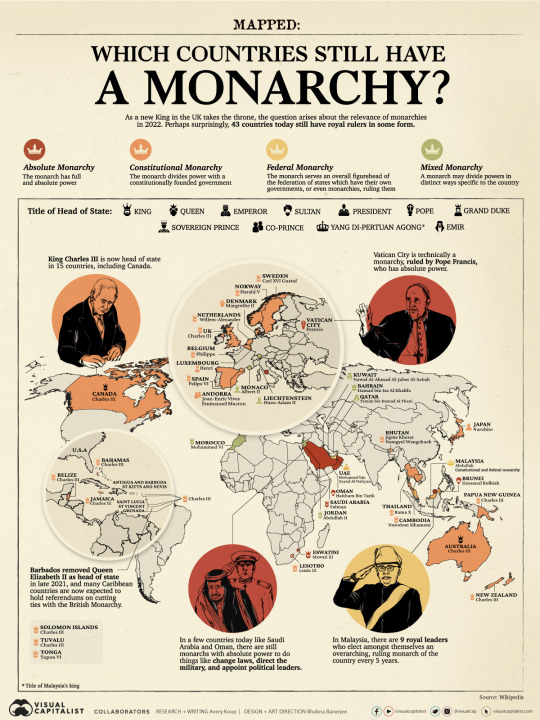
It’s first worth stating it helps to understand what kind of monarchy are we talking about? A surprising number of countries have ruling monarchs but not the same role or power. It’s important to break down the distinctions between the types of monarchies that exist today. Generally, there are four kinds.
In the constitutional monarchy, the monarch divides power with a constitutionally founded government. In this situation, the monarch, while having ceremonial duties and certain responsibilities, does not have any political power. For example, the UK’s monarch must sign all laws to make them official, but has no power to change or reject new laws. Example of countries that follow this are United Kingdom, Japan, and Denmark.
In the absolutist monarchy the monarch has full and absolute political power. They can amend, reject, or create laws, represent the country’s interests abroad, appoint political leaders, and so on. Such countries Said Arabia and Eswatini and even arguably the Vatican (the Papal office is like an absolutist monarch but of the church).
In the federal monarchy the monarch serves an overall figurehead of the federation of states which have their own governments, or even monarchies, ruling them. These countries include UAE and Malaysia.
In the mixed monarchy there is an unusual situation wherein an absolute monarch may divide powers in distinct ways specific to the country. Here Jordan, Liechtenstein, and Morocco are stand out examples.
To many contemporary critics and political progressives, monarchies seem to be purposeless antiquated relics, anachronisms that ought to eventually give way to republics.
On the contrary, nothing can be farther from the truth. Monarchies have an extremely valuable role to play, even in the 21st century and beyond. If anything their number should be added to rather than subtracted from. To understand why, it is important to consider the merits of monarchy objectively without resorting to the tautology that countries ought to be democracies because they ought to be democracies.

There are several advantages in having a monarchy in the 21st century. First, monarchs can rise above politics in the way an elected head of state cannot. Monarchs represent the whole country in a way democratically elected leaders cannot and do not. The choice for the highest political position in a monarchy cannot be influenced by and in a sense beholden to money, the media, or a political party.
Secondly and closely related to the previous point is that in factitious countries like Thailand, the existence of a monarch is often the only thing holding the country back from the edge of civil war. Monarchs are especially important in multiethnic countries such as Belgium because the institution of monarchy unites diverse and often hostile ethnic groups under shared loyalty to the monarch instead of to an ethnic or tribal group. The Habsburg dynasty held together a large, prosperous country that quickly balkanised into almost a dozen states of no power without it. If the restoration of the erstwhile king of Afghanistan, Zahir Shah, widely respected by all Afghans, went through after the overthrow of the Taliban in 2001, perhaps Afghanistan would have more quickly risen above the factionalism and rivalry between various warlords.
Third, monarchies prevent the emergence of extreme forms of government in their countries by fixing the form of government. All political leaders must serve as prime ministers or ministers of the ruler. Even if actual power lies with these individuals, the existence of a monarch makes it difficult to radically or totally alter a country’s politics. The presence of kings in Cambodia, Jordan, and Morocco holds back the worst and more extreme tendencies of political leaders or factions in their countries. Monarchy also stabilises countries by encouraging slow, incremental change instead of extreme swings in the nature of regimes. The monarchies of the Arab states have established much more stable societies than non-monarchic Arab states, many of which have gone through such seismic shifts over the course of the Arab Spring.
Fourth, monarchies have the gravitas and prestige to make last-resort, hard, and necessary decisions - decisions that nobody else can make. For example, Juan Carlos of Spain - now in disgrace but not in the beginning of his reign - personally ensured his country’s transition to a constitutional monarchy with parliamentary institutions and stood down an attempted military coup. At the end of the Second World War, the Japanese Emperor Hirohito defied his military’s wish to fight on and saved countless of his people’s lives by advocating for Japan’s surrender.
Fifth, monarchies are repositories of tradition and continuity in ever changing times. They remind a country of what it represents and where it came from, facts that can often be forgotten in the swiftly changing currents of politics.
Finally, rather counterintuitively, monarchies can serve up a head of state in a more democratic and diverse way than actual democratic politics. Since anyone, regardless of their personality or interests, can by accident of birth become a monarch, all types of people may become rulers in such a system. The head of state may thus promote causes or stir interest in issues and topics that would otherwise not be significant, as King Charles’ views on architecture and climate change proved. Politicians on the other hand, tend to have a certain personality - they are generally extroverted, can make or raise money, and have a tendency to pander or at least publicly hold to pre-defined mainstream views. The presence of a head of state with a psychological profile different from a politician can be refreshing.
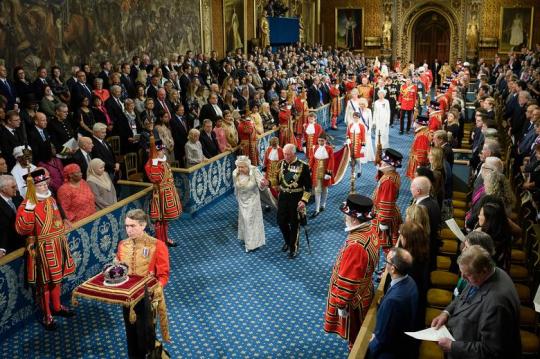
Most of the criticisms of monarchy are no longer valid today, if they were ever valid. These criticisms are usually some variation of two ideas. Firstly, the monarch may wield absolute power arbitrarily without any sort of check, thus ruling as a tyrant. However, in present era, most monarchies rule within some sort of constitutional or traditional framework which constrains and institutionalises their powers. Even prior to this, monarchs faced significant constraints from various groups including religious institutions, aristocracies, the wealthy, and even commoners. Customs, which always shape social interactions, also served to restrain. Even monarchies that were absolute in theory were almost always constrained in practice.
A second criticism is that even a good monarch may have an unworthy successor. However, today’s heirs are educated from birth for their future role and live in the full glare of the media their entire lives. This constrains bad behaviour. More importantly, because they have literally been born to rule, they have constant, hands-on training on how to interact with people, politicians, and the media.
In light of the all the advantages of monarchy, it is clear why many citizens of democracies today have an understandable nostalgia for monarchy. As in previous centuries, monarchy will continue to show itself to be an important and beneficial political institution wherever it still survives.
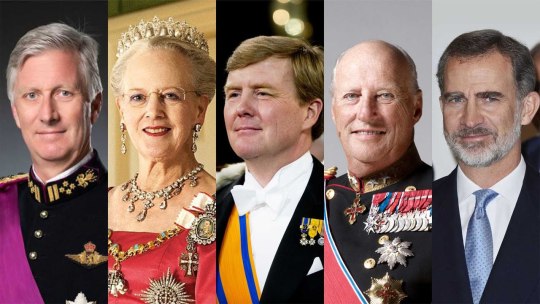
Constitutional monarchies are undoubtedly the most popular form of royal leadership in the modern era, making up close to 70% of all monarchies. This situation allows for democratically elected governments to rule the country, while the monarch performs ceremonial duties. Most monarchs are hereditary, inheriting their position by luck of their birth, but interestingly, the French president, Emmanuel Macron, technically serves as a Co-Prince of Andorra - a fact I enjoy making my good French republican friends squirm in discomfort. But France remains resolutely a republic despite many other European countries being a constitutional monarchy.
Monarchy has a long history in Europe, being the predominant form of government from the Middle Ages until the First World War. At the turn of the twentieth century every country in Europe was a monarchy with just three exceptions: France, Switzerland and San Marino. But by the start of the twenty-first century, most European countries had ceased to be monarchies, and three quarters of the member states of the European Union are now republics. That has led to a teleological assumption that in time most advanced democracies will become republics, as the highest form of democratic government.
But there still remains a stubborn group of countries in Western Europe which defy that assumption, and they include some of the most advanced democracies in the world. In the most recent Democracy Index compiled by the Economist Intelligence Unit, six out of the top ten democracies - and nine of the top 15 - in the world were monarchies. They include six European monarchies: Norway, Sweden, Denmark, the Netherlands, Luxembourg and the UK.
It remains a historical paradox. These monarchies have survived partly for geopolitical reasons, most of the other European monarchies having disappeared at the end of the First or Second World Wars. Their continuance has been accompanied by a steady diminution in their political power, which has shrunk almost to zero, and developing roles that support liberal democracy. What modern monarchies offer is non-partisan state headship set apart from the daily political struggle of executive government; the continuity of a family whose different generations attract the interest of all age groups; and disinterested support for civil society that is beyond the reach of partisan politics. These roles have evolved because monarchy depends ultimately on the support of the public, and is more accountable than people might think.
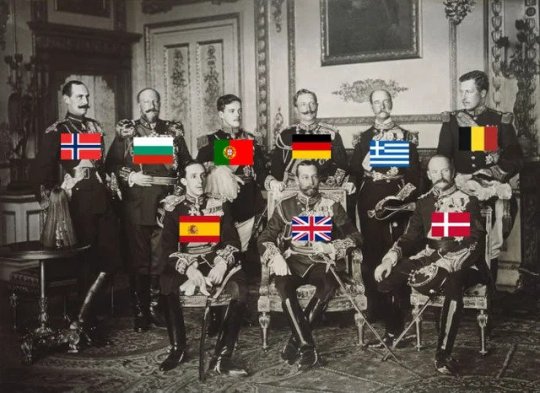
Understanding this paradox of an ancient hereditary institution surviving as a central part of modern democracies is a key part of understanding why monarchies persist and will continue to exist.
I’m going to confine answering your question to constitutional monarchy because it’s what the United Kingdom and the rest of Europe is. This is partly to narrow the wide question to something more manageable but also reflective of the fact that each country is different with its own unique history of customs, traditions, and heritage, and practices of governance, that make up the unique quality of the monarchy in question.
I’m just going to give you a general recommendation list rather than a deep academic dive into political theory. But then theory is no good without practice. History is the best place to start to understand some of the things I’ve already highlighted.
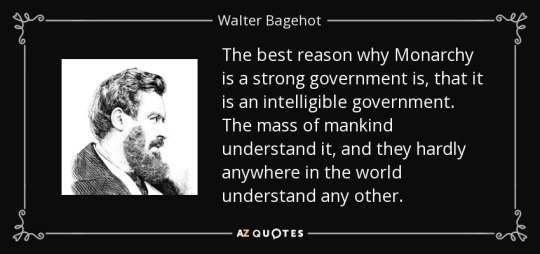
1. The English Constitution by Walter Bagehot
I know I said to start with history and here I’m recommending you begin with reading a book on constitutional theory and practice. But hear me out.
First published in 1867, this remains the indispensable guide to the role and purpose of the British sovereign. The text by Walter Bagehot (who was editor of The Economist for 17 years) is often mistaken for an official account of constitutional monarchy. In fact, it is a lively argument on how Britain’s old institutions should cope with the coming of mass-democracy. It was in this spirit that Bagehot contrasted the “dignified” parts of the constitution - the monarchy and the House of Lords - with the merely “efficient”, the Cabinet, MPs and the like. In the new age of mass-politics, he considered that the role of the monarchy was to “excite and preserve the reverence of the population” for the country’s institutions and government. Although monarchs might not have executive power anymore, they maintained three rights over “efficient” politicians - “to be consulted, to encourage and to warn”.
That the British monarchy survived while many of Europe’s were overthrown is in no small measure to the Windsors’ scrupulousness in following Bagehot’s advice. And, prophetically, he cautioned that the whole royal conjuring trick could only work if its dignity was preserved: “If you begin to poke about it, you cannot reverence it…its mystery is its life. We must not let in daylight upon the magic.”
The great thing is you don’t even have to buy it. Free copies exist online to download. I have my own copy because it really is a sort of bible for me when I have to think soberly and stay grounded as the latest royal scandal erupts and everyone is losing their heads.
2. Crown and Country: A history of England through the Monarchy by David Starkey (2010)
David Starkey is one of Britain’s finest medieval historians and fine prose stylist. A Cambridge historian whose lectures I used to sneak off to listen to - I did Classics - because the man was so charismatic, provocative, and damn clever. From one of our finest historians comes an outstanding exploration of the British monarchy, from the retreat of the Romans up until the modern day.
Crown and Country is a spin off from his TV series on the same subject. However the book is a great introduction to monarchy in Britain. In it he provides the reader with enough intellectual rigour to impart context, before livening the page with pithy tales of treachery or cruelty, of double-dealing or disaster. His delight at their shock value is tangible as he takes us from England's earliest status, as a barbarous outpost of the Roman empire, through to a rather uncomfortable attempt to second-guess how history will one day judge the contemporary members of the Windsor family (going up to the marriage of William and Kate).

Academic historians often complain that Starkey writes with the snappy zest of an unrepentant telly-don, but I doubt anybody else minds very much. He has a lovely eye for a good story – William the Conqueror being so fat that he could not fit in his sarcophagus, so that “the swollen bowels burst and an intolerable stench assailed the nostrils of the bystanders”, for example, or Henry II having such a tantrum that he fell out of bed and “threshed around the floor, cramming his mouth with the stuffing of his mattress”.
He also has a nice line in snarky humour. Academics have recently been trying to rehabilitate King John as a good administrator, he notes, but to praise him “for being a royal filing clerk shows historians looking after their own with a vengeance”.
Starkey’s great skill is to weave big themes quietly into a rollicking narrative, so that you absorb them almost without noticing they are there.
From the beginning, he argues, England’s monarchy has been unlike any other, divorced from imperial Roman traditions and based on an unspoken contract between king and people, and so reflecting a deep sense of patriotic exceptionalism. From Alfred, who effectively invented the idea of an English nation, to George III, who became the incarnation of bluff, beef-eating John Bull during the Napoleonic Wars, and on to George VI, the personification of quiet determination during Britain’s darkest and finest hours, successful kings have come to embody a wider spirit of national defiance. Perhaps that explains why, for all his faults, we remain fascinated with Henry VIII: he may have been a monster, but he was proudly, unapologetically, our monster.
Since it is evidently raw power that turns Starkey on, perhaps it is not surprising that once we are past the Glorious Revolution and the rule of dour, cunning, competent William of Orange, his narrative begins to flag. The House of Hanover, he says, was a “national joke” and although he clearly relishes the amorous misadventures of George IV and Edward VII, he spends barely 20 pages on the House of Windsor.
Compared with the blood-soaked warrior kings of his opening chapters, our recent monarchs have been personally colourless and politically irrelevant. But Starkey is not ready to give up on the monarchy. Just like his forebears, he points out, the current Prince of Wales has become the symbol of something bigger than himself, the cause of the environment and the spirit of voluntary service.
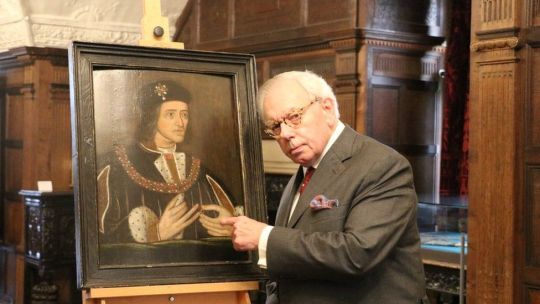
Nobody else could have set up such a vast empire of charitable endeavour: “Only he has the necessary combination of social and economic power and imagination to pull it off.” And here, Starkey argues, lies a formula for survival: “A new kingdom of the mind, spirit, culture and values,” which would appeal even to Oliver Cromwell.
Starkey is particularly good at explaining the shifting tone of monarchical power. After the straightforward Anglo-Saxon model, English kings had to incorporate the Norman way of doing things, with its "chivalric virus"; we then see the Tudors appear with their imperialist vision, followed by the disastrous Stuart belief in the divine right of kings, which James I subscribed to intellectually, and which Charles I paid for with his head. After that we see Hanoverian mediocrity, followed by Victorian pomp, and Windsor flexibility – changing nationality and name as wars with Germany, their ancestral home, demanded.
Crown & Country is a masterpiece of accessible history, underscored with profound scholarship: it takes the essential structure of hereditary monarchy, chronicles the struggles and triumphs of a rich panoply of carefully crafted characters and lays out the story of a nation. Above all, the author's passion for his subject, the royal tale of England, which is the backbone of this nation's story, explodes from every page. I defy anybody not to enjoy this book.
3. Blood Royal: Dynastic Politics in Medieval Europe by Robert Bartlett (2020)
Throughout medieval Europe, for hundreds of years, monarchy was the way that politics worked in most countries. This meant power was in the hands of a family - a dynasty; that politics was family politics; and political life was shaped by the births, marriages and deaths of the ruling family. How did the dynastic system cope with female rule, or pretenders to the throne? How did dynasties use names, the numbering of rulers and the visual display of heraldry to express their identity? And why did some royal families survive and thrive, while others did not? Robert Bartlett’s engaging Blood Royal tries to answer these questions by focusing on both the role of family dynamics and family consciousness in the politics of medieval European monarchical systems circa 500 to 1500 CE.
He creates an authoritative historical survey of dynastic power in Latin Christendom in western and central Europe and the Byzantine Empire (or former Eastern Roman Empire), providing an impressive level of depth while putting aspects of royalty and kingship in perspective. Each chapter brings the reader into this political world and aspects of medieval politics’ ties to family politics. Bartlett transitions seamlessly from example to example, but this apparent ease and vast knowledge reflects years of research and underscores his area expertise.

Blood Royal is an excellent book for anyone who has ever had a question about medieval European monarchy. If you’ve ever wondered how medieval marriages worked, the politics of dynastic succession, or even something as simple as what happened when the current monarch died then Bartlett’s book probably has an answer for you. Blood Royal is split into two sections, the first focusing on the specific lives of medieval royals, with chapters on medieval marriage, children, paternal relationships, as well as female rulers and mistresses. The second section covers dynasties rather than individuals. It is in this latter section that you’ll find discussions of names and numbers, pretenders, as well as heraldry and even the role of prophecy and astrology in medieval dynastic politics.
The scope of Blood Royal is immense. Bartlett includes early medieval dynasties like the Merovingians and Carolingians alongside later examples like the Plantagenets and the Hohenstaufen. Bartlett also incorporates an impressive range of dynasties from across medieval Europe, not limiting himself to just the French, English, and German royal families. Overall, it makes for a very impressive piece of scholarship from a senior historian, but one that is written in a very approachable and engaging fashion. The breadth of the coverage means that no matter where your interest in medieval Europe lies there’s probably something relevant to it in Blood Royal.
4. On Power: The Natural History of Its Growth by Bertrand De Jouvenel (1945)
Bertrand de Jouvenal is one of the most under-read political theorists in Europe today and it’s only in the last couple of decades his works have been translated into English. He wrote two seminal books pertinent to the state and how politics and monarchy mixed. I would thoroughly recommend his book ‘Sovereignty’ (1957) in that regard. How he treats sovereignty is clear and insightful and better than any academic I know. He describes how sovereignty in the modern sense can be traced back to the eleventh century, when absolutism was developed under such rulers as Philip the Fair. Before absolutism, it was acknowledged that every man had his seigniory, the king just as much as a simple farmer. The seigniory of the king was far greater, of course, but only as inviolable as that of every other person (as exemplified in the anecdote of Frederick the Great and the miller). The idea of a sovereignty that flows down from the sovereign to all his subjects was taken from the ancient Romans, and formed the basis of absolutism. One consequence of this was that democracy as we know it became possible in the first place. Before absolutism, there simply was no sovereignty that could be removed from the king and given to the people.
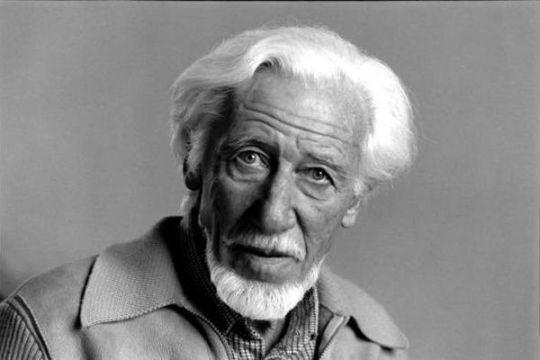
However I’m going to recommend his other book, ‘On Power’, as it’s book that defines the role of power and its relationship to sovereignty and where it came from. It goes into the role of sovereign or dux, and his or her shared responsibility with the larger group. This book explains how absolute monarchy is a recent concept, and as a result of the Enlightenment. It points out the hazards of absolute power within any form of government. It then goes into change v.s. distrust of initiative, and emerging liberalism. One of the best political treatises I have ever read. Bertrand de Jouvenel is unconventional, creative, very thorough and stringent. It's not easy to sum up, as the book is rather suggestive in nature. It doesn't so much tell you the solutions as make you think for them yourself. It gives you tools with which to overthink and analyse political problems, but doesn't force a solution on you.
Bertrand de Jouvenel (1903-1987) was a French journalist and political theorist. During World War II, he participated in the French resistance movement and finally took refuge in Switzerland, where he finished his masterpiece, On Power.
Jouvenel was troubled by the savagery of the war. Such a total war, Jouvenel realised, could not happen without the power of the modern centralised state. Jouvenel called this state, “Power” or “the Minotaur.” The question he set out to analyse was how this monster had grown so large. As indicated by the subtitle of the book, The Natural History of Its Growth, the analysis is meant to be positive political science, as opposed to normative political philosophy. When he wrote On Power, Jouvenel obviously knew little of the libertarian or classical liberal tradition. He has been labelled a “conservative liberal” à la Alexis de Tocqueville (whom Friedrich Hayek, it is worth recalling, does recognise as a full member of the classical liberal tradition).
The modern state has acquired a crushing power that includes war and conscription, an “inquisitorial mechanism of taxation,” and a police more effective than at any time in history. “Even the police regime, that most insupportable attribute of tyranny, has grown in the shadow of democracy,” Jouvenel observes. “No absolute monarch ever had at his disposal a police force comparable to those of modern democracies.” Power has continued and continues to grow.
Power is “command that lives for its sake and for its fruits.” State rulers want power and the perks that come with it. But, Jouvenel explained, in the very process of being self-interested, Power also benefits its subjects compared to what would be their situation in the anarchic state of nature. To gain their support and to make them more productive and taxable, Power provides its subjects with security, order, and other public goods. This is an old philosophical idea dear to defenders of absolutism, but it carries an analytical value of its own.
From Antiquity until the 16th or 17th century, Jouvenel argues, three ways existed to limit Power: divine law, fixed customary law, and powerful social authorities such as the ancient or the medieval aristocracy. All these were overcome. Divine law was brushed away by modern rationalism. Fixed customary law was replaced by changing laws made by absolute monarchs and, even more, by democratic parliaments. The aristocracy was stripped of any power.

Sovereignty, Jouvenel explains, is “the idea… that somewhere there is a right to which all other rights must yield.” The king claimed sovereignty against the aristocracy. Once the aristocracy was defeated, “the people” invoked it against the king. The king was simply replaced by the people or, in practice, by its representatives.
Jouvenel conceives liberty as “the direct, immediate, and concrete sovereignty of man over himself.” It is not participation in government, which is “absurdly called ‘political liberty’.” He forcefully argues that no regime other than aristocracy is “equally allergic to the expansion of Power.” Between the fall of the Roman empire and the modern nation-state, kings had to negotiate grants in aid from the aristocrats in order, for example, to fight wars, which were limited for this very reason. General conscription was unknown and impossible.
Jouvenel argues that liberty has aristocratic roots for it came from aristocrats who had the means and the will to defend their own liberty against Power. Liberty “is a subjective right which belongs to those, and to those only, who are capable of defending it.” It was certainly “a system based on class,” with all the drawbacks that this implies. Jean-Jacques Rousseau, a modern prophet of democracy, suggested that slavery might even be the necessary counterpart of free and independent citizens voluntarily devoting their time to public affairs.
To eliminate the independent social power that the aristocrats represented, kings allied themselves with powerless individuals such as the common people and the new capitalist bourgeoisie. Aristocrats were replaced by “statocrats,” individuals who derived their authority only from their position in the service of the state. The new democratic citizens would soon fall under a Power much more encompassing than that of the local lord.
A crucial idea of On Power, which can also be found in Tocqueville, is that instead of restraining Power, popular sovereignty reinforced it. Democracy was conceived by its early theorists as liberty and the rule of law. But another conception, which won the day, identified democracy with the sovereignty of the people. In this conception, democracy replaces the rule of law by the people’s good pleasure, which in practice means the good pleasure of its elected representatives and the government bureaucracy.
The popular sovereign became the new king, but without the restraints that law and aristocracy previously imposed. Liberty diminished since “[e]very increase of state authority must involve an immediate diminution of the liberty of each citizen.” Like ancient philosophers, Jouvenel sees aristocracy, democracy, and tyranny as the only feasible regimes.
5. The Role of Modern Monarchy: European Monarchies Compared edited by Robert Hazell and Bob Morris (2020)
No new political theory on this topic has been developed since Walter Bagehot wrote about the monarchy in The English Constitution (1867). The same is true of the other European monarchies. So this is a welcome update in terms of what’s happened in the last 150 years or so across Europe. It’s actually the brainchild of a project coming out of the Constitutional Unit at University College London. The book is excellent and is written by experts from Belgium, Denmark, Luxembourg, the Netherlands, Norway, Spain, Sweden and the UK. It considers the constitutional and political role of monarchy, its powers and functions, how it is defined and regulated, the laws of succession and royal finances, relations with the media, the popularity of the monarchy and why it endures. This collections of essays written by academics is the first comparative study of its kind and broadly asks with their formal powers greatly reduced, how has this ancient, hereditary institution managed to survive and what is a modern monarch’s role? What theory can be derived about the role of monarchy in advanced democracies, and what lessons can the different European monarchies learn from each other?
The public look to the monarchy to represent continuity, stability and tradition, but also want it to be modern, to reflect modern values and be a focus for national identity. The whole institution is shot through with contradictions, myths and misunderstandings. This book should lead to a more realistic debate about our expectations of the monarchy, its role and its future. As a whole these twenty contributors notes several factors to the continued survival of the constitutional monarchy in Europe today.

Firstly, remain politically neutral. Monarchs who are too interventionist will encounter resistance and lose their reputation for neutrality. Secondly, avoid scandals, or any hint of corruption. Thirdly, keep the team small. The greater the size of the royal family, the greater the risk that one of its members may get into trouble and cause reputational damage; and the greater the risk of criticism about excessive cost, and too many hangers-on. Fourthly, Understand better the plight of the minor royals, allow them a means of escape and equip them to enter careers commensurate with their abilities. They lead lives of great privilege, but lack fundamental freedoms: the right to privacy and family life which ordinary citizens take for granted, free choice of careers, freedom to marry whom they like. Fifthly, keep in your lane. Although hereditary, the monarchy is accountable, just like any other public institution. The most high profile example is King Juan Carlos of Spain, now in exile and the subject of prosecutorial investigations. But he is not alone: other monarchs who stepped out of line have also lost their thrones.
Arguably the biggest factor of all is how accountable the monarchy is to its subjects - as paradoxical as that sounds. Accountability of the monarchy in a democracy is vital and necessary. Individual monarchs can be forced to abdicate; and support for the institution as a whole can be tested in a referendum. During the twentieth century there were 18 referendums held on the monarchy in nine European countries. It was through referendums that the monarchy came to an end in Italy and Greece, and was restored in Spain; and through referendums that the future of the monarchy was endorsed in Belgium, Denmark, Luxembourg and Norway. The monarchy may seem the very antithesis of a democratic or accountable institution; but ultimately continuation of the monarchy depends on the continuing support of the people for the roles it is seen to undertake. And people can be equally fickle with emotions as they can be reasonable and grounded in common sense.
I would also recommend two videos you can watch online which basically saves your from reading the above - or watching it may inspire you to go and read the books (which would be my intention).
1. Monarchy by David Starkey (TV documentary series)
Monarchy was originally made by Channel 4 as a British TV series that ran from 2004–2007. It was written and presented by the historian David Starkey charting the political and ideological history of the English monarchy from the Saxon period to modern times. The show also aired on PBS stations throughout the United States. You can watch the series on YouTube.
youtube
The first episode looks at discusses the early history of England and the birth of the Monarchy. It looks migration of the Anglo-Saxons into Britain and discusses some early rulers including. It looks at the roles of Aethelbert and his Frankish wife Bertha in the Christianisation of Britain. It examines the dominant reign of King Offa of Mercia. Finally, it looks at Alfred the Great and how he united England against Viking invasion.
2. The Role of Modern Monarchy: European Monarchies Compared: book launch discussion
This is an online discussion hosted by BBC’s David Dimbleby amongst some of the main contributors of the book and the conclusions they reached. It’s very good discussion both wide ranging and insightful how modern monarchies operate across Europe.
youtube
On the face of it, the British monarchy runs against the spirit of the times. Deference is dead, but royalty is built on a pantomime of archaic honourifics and frock-coated footmen. In an age of meritocracy, monarchy is rooted in the unjustifiable privilege of birth. Populism means that elites are out, but the most conspicuous elite of all remains. Identity politics means that narratives are in, but the queen kept her feelings under her collection of unfashionable hats. By rights, support for the crown should have crumbled under Elizabeth has sometimes imagined it might. Instead, the monarchy thrived. And it continues to thrive and thus maddening the bourgeois woke elites and perplexing trendy decolonisation academics.

Writing in the 1860s, Walter Bagehot, The Economist’s greatest editor, noted that under Britain’s constitutional monarchy “A republic has insinuated itself beneath the folds of a monarchy.” The executive and legislative powers of government belonged to the cabinet and Parliament. The crown was the “dignified” part of the state, devoted to ceremony and myth-making. In an elitist age, Bagehot saw this as a disguise, a device to keep the masses happy while the select few got on with the job.
You do not need a monarchy to pull off the separation, obviously. Countries like Ireland rub along with a ceremonial president instead. He or she comes from the people and has, in theory, earned the honour. A dud or a rogue can be kicked out or prosecuted. To a degree, history lays down the choice - it would be comic to invent a monarchy from scratch.

However, constitutional monarchy has one advantage over figurehead presidencies that is the final reason behind Elizabeth’s surprising success: its mix of continuity and tradition, which even today is tinged with mystical vestiges of the healing royal touch. All political systems need to manage change and resolve conflicting interests peacefully and constructively. Systems that stagnate end up erupting; systems that race away leave large parts of society left behind and they erupt, too.
Under Elizabeth, Britain changed unrecognisably. Not only has it undergone social and technological change, like other Western democracies, but it was also eclipsed as a great power. More than once, most recently over Brexit, politics choked. During all this upheaval, the continuity that monarchy displays has been a moderating influence. George Orwell, no establishment stooge, called it an “escape-valve for dangerous emotions”, drawing patriotism away from politics, where love of country can rot into bigotry. Decaying empires are dangerous. Britain’s decline has been a lot less traumatic than it might have been.
Elizabeth’s sleight of hand was to renew the monarchy quietly all the while, and King Charles’s hardest task will be to renew it further. The prospect is daunting, but entirely possible. My money is on the monarchy.
Anyway, this is by no means a definitive listing of books or other kinds of resources such as online resources. But I hope I can give you the flavour of the terrain of how and why monarchies continue to persist but also thrive in today's democratic environment.

Thanks for your question.
#ask#question#monarchy#united kingdom#britain#europe#constitutional monarchy#democracy#the state#society#politics#aristocracy#governance#constitutional#elizabeth II#king charles III#walter bagehot#david starkey
73 notes
·
View notes
Quote
When the sage governs, does he govern what is on the outside? He makes sure of himself first, and then he acts.
Zhuangzi, The Complete Works of Zhuangzi, Watson tr. (Ch 7)
#philosophy#quotes#Zhuangzi#The Complete Works of Zhuangzi#self#governance#self control#actions#awareness
64 notes
·
View notes
Text
Mia Mottley | TIME100
youtube
5 notes
·
View notes
Text
I heartily accept the motto,—"That government is best which governs least;" and I should like to see it acted up to more rapidly and systematically. Carried out, it finally amounts to this, which I also believe,—"That government is best which governs not at all;" and when men are prepared for it, that will be the kind of government which they will have. Government is at best but an expedient; but most governments are usually, and all governments are sometimes, inexpedient.
` Henry David Thoreau, Civil Disobedience
9 notes
·
View notes
Text
"We have the money, the power, the medical understanding, the scientific know-how, the love and the community to produce a kind of human paradise. But, we are led by the least among us. The least intelligent, the least noble, the least visionary."
— Terence McKenna
#terence mckenna#money#power#society#technology#medicine#humanities#paradise#heaven#politics#governance#government#intelligence#noble#vision#science#service#culture#history#philosophy#quotes#anthropology
5 notes
·
View notes
Note
I have an idea. Let MC strive to introduce democracy in the country.
That's a possible ending! MC's capable of reforming the kingdom's governance.
8 notes
·
View notes
Text
« Democrats want to govern because they believe government has a chance to do good. This means even the party’s most left-wing members will compromise to take a step or two forward even when they want to take four.
Republicans, on the other hand, are riven between those willing to govern — even, occasionally, with Democrats — and those who will be satisfied only if Trump is president. They presume this would allow them to roll over the left, the liberals and the moderates alike. »
— Columnist E.J. Dionne at the Washington Post.
Most Republicans are not really that interested in governing – except for persecuting people different from them and giving big tax breaks to the filthy rich. The perpetual culture war is all that really matters to the GOP.
Remember the famed "Infrastructure Week" during the Trump administration? If not, that's because it never happened during the 208 weeks of Trump's term. He was probably too busy rage-tweeting from the bathroom to be involved in the actual work of governing.
In contrast, infrastructure improvement was promised, passed, and is currently in the process of being delivered by Joe Biden. Check the map in the link below to see projects in your state.
Investing In America
Even in Speaker "MAGA Mike" Johnson's Louisiana there are many local people benefiting.

With Democrats you get job creation and investment. With Republicans you get vengeance and retribution with a heavy dose of incompetence.
Anybody who tells you that both parties are alike has the veracity of George Santos. Nobody talks about the Ebola outbreak of the early 2010s any more because the Obama administration handled it competently. The Trump administration completely botched the COVID-19 outbreak right from the start and America suffered much more because of his ineptitude and indolence.
#the two parties are not alike#governance#infrastructure#democracy#gop incompetence#“maga mike” johnson#louisiana#democratic job creation#joe biden#e.j. dionne#election 2024
6 notes
·
View notes
Text
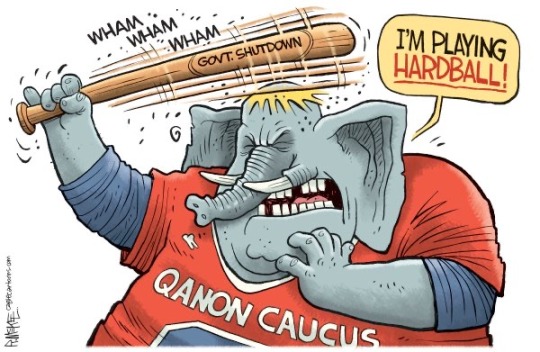
LETTERS FROM AN AMERICAN
October 3, 2023
HEATHER COX RICHARDSON
Wow.
Today, House Republicans made history by being the first to throw out their own Speaker of the House, while the frontrunner for the 2024 Republican presidential nomination made history by being the first candidate to be gagged by a judge after threatening one of the judge’s law clerks by posting a lie about her on social media.
Ever since Representative Kevin McCarthy (R-CA) made a deal with the extremists in his conference to win the speakership after Republicans took control of the House of Representatives in January 2023, he has catered to those extremists in an apparent bid to hold on to his position. From the first, he gave them key positions on committees, permitted them to introduce extreme measures and load up bills with poison pills that meant the bills could never make it through Congress, and recently to open impeachment hearings against President Joe Biden.
But the extremists have continued to bully him, especially since they opposed a deal he cut with Biden before McCarthy would agree to raise the debt ceiling, threatening to make the United States default on its debt for the first time in U.S. history. When their refusal to pass either appropriations bills or a continuing resolution to buy more time to pass those bills meant the U.S. was hours away from a government shutdown, McCarthy finally had to rely on the Democrats for help passing a continuing resolution on Saturday.
A shutdown would have hurt the country and, in so doing, would have benefited former president Trump, to whom the extremists are loyal. Led by Representative Matt Gaetz of Florida, they were vocal about their anger at McCarthy’s pivot to the Democrats to keep the government open,
Yesterday, Gaetz challenged McCarthy’s leadership, apparently with the expectation that the Democrats would step in to save McCarthy’s job, although it is traditionally the majority party that determines its leader. According to Paul Kane of the Washington Post, McCarthy did reach out to Democrats for votes to support his speakership. But Democrats pointed to McCarthy’s constant caving to the MAGA Republicans—as recently as Sunday, McCarthy blamed the threat of a shutdown on the Democrats—and were clear the problem was the Republicans’ alone.
“It is now the responsibility of the [Republican] members to end the House Republican Civil War. Given their unwillingness to break from MAGA extremism in an authentic and comprehensive manner, House Democratic leadership will vote yes on the pending Republican Motion to Vacate the Chair,” minority leader Hakeem Jeffries wrote to the Democratic caucus.
And so, when the House considered blocking Gaetz’s motion to vacate the chair, the measure failed by a vote of 208 to 218. Eleven Republicans voted against blocking it. And then, on the voting over the measure itself, 216 members voted to remove McCarthy while 210 voted to keep him in the speaker’s chair. Eight Republicans abandoned their party to toss him aside, making him the first speaker ever removed from office.
The result was a surprise to many Republicans, and there is no apparent plan for moving forward. House Rules Chairman Tom Cole (R-OK), who released a statement supporting McCarthy, called the outcome “simply a vote for chaos.”
Speakers provide a list of people to become temporary speakers in case of emergency, so the gavel has passed to Representative Patrick McHenry (R-NC), who has power only to recess, adjourn, and hold votes for a new speaker. McCarthy says he will not run for speaker again. The House has recessed for the rest of the week, putting off a new speaker fight.
Until then, Republicans seem to be turning their fury at their own debacle on the Democrats, blaming them for not stepping in to fix the Republicans’ mess. One of McHenry’s first official acts was to order former speaker Nancy Pelosi (D-CA) to vacate her private Capitol office by tomorrow, announcing that he was having the room rekeyed. Pelosi was not even there for today’s votes; she is in California for the memorial services for the late Senator Dianne Feinstein (D-CA).
McHenry’s action is unlikely to make the Democrats more eager to work with the Republicans; Pelosi noted that this “sharp departure from tradition” seemed a surprising first move “[w]ith all the important decisions that the new Republican Leadership must address, which we are all eagerly awaiting….” Pelosi might have been sharp, but she is not wrong. The continuing resolution to fund the government runs out shortly before Thanksgiving, and funding for Ukraine has an even shorter time frame than that. The House cannot do business without a speaker, and each day this chaos continues is a victory for the extremists who are eager to stop a government that does anything other than what they want from functioning, even as it highlights the Republicans’ inability to govern.
Phew. But that was not the end of the day’s news.
Jose Pagliery of The Daily Beast, who is watching the New York trial of Trump, his two older sons, two of his associates, and the Trump Organization, wrote that New York Supreme Court Justice Arthur F. Engoron said today that he had warned Trump’s lawyer that Trump must not continue his attacks on the justice system. Rather than heed the warning, Trump today went after Engoron’s own law clerk, posting a lie about her with a photo on social media. “Personal attacks on members of my court staff are unacceptable, inappropriate, and I will not tolerate them under any circumstances,” Engoron said.
Engoron ordered Trump to delete the post, and the former president did so. Engoron forbade “all parties from posting, emailing, or speaking publicly about any members of my staff” and warned there would be “serious sanctions” for those who did so.
The New York case strikes close to Trump’s identity as a successful businessman by showing that he lied about the actual value of his properties, and by dissolving a number of his businesses by canceling their licenses. Adding to Trump’s troubles today is that he fell off Forbes’ list of the 400 wealthiest Americans, a status that in the past he has cared deeply about.
In the midst of the Republican chaos, the Biden administration announced that the manufacturers of all the ten drugs selected for negotiation with Medicare to lower prices have agreed to participate in the program, although they are pursuing lawsuits to stop it. Several of the pharmaceutical companies have complained of being “essentially forced” to sign on; one says it is participating “under protest” but feels it has no choice given the penalties their products would bear if they are unwilling to negotiate prices.
According to the White House, the ten drugs selected for negotiation accounted for a total of $3.4 billion in out-of-pocket costs for an estimated 9 million Medicare enrollees in 2022. The negotiations were authorized by the Inflation Reduction Act, which passed without any Republican votes.
The Department of Justice announced eight indictments against China-based companies and their employees for crimes relating to street fentanyl and methamphetamine production, distribution of synthetic opioids, and sales resulting from precursor chemicals used to make street fentanyl. Drug Enforcement Administration (DEA) administrator Anne Milgram noted that the supply chain that brings street fentanyl to the U.S. starts in China, from which chemical companies ship fentanyl precursors and analogues into our country and into Mexico, where the chemicals “are used to make fentanyl and make it especially deadly.” Milgram promised that the “DEA will not stop until we defeat this threat.”
Finally, while the Republicans were making history on the House side of the U.S. Capitol, the Democrats were making history on the Senate side. Vice President Kamala Harris swore into office Senator Laphonza Butler to complete the term of Senator Dianne Feinstein, which ends next year. Before her nomination, Butler was the president of EMILYs List, a political action committee dedicated to electing Democratic female candidates who back reproductive rights to office, and has advised a number of high-profile political campaigns, including that of Harris in 2020.
Butler is the first Black lesbian in the Senate. She and her wife, Nenike, have a daughter.
LETTERS FROM AN AMERICAN
HEATHER COX RICHARDSON
#letters From an american#heather cox richardson#Kevin McCarthy#USHouse of Representatives#corrupt GOP#radical GOP#governance#TFG#gag order
15 notes
·
View notes
Text
Much of the social history of the Western world over the past three decades has involved replacing what worked with what sounded good.
Thomas Sowell, Source Unlisted.
#philosophy tumblr#philoblr#philosopher#thinker#american authors#writrblr#thomas sowell#economics#politics#governance#social policy#ideology#nationalism#dark academia#life quotes
8 notes
·
View notes
Text
We, the Japanese people, acting through our duly elected representatives in the National Diet, determined that we shall secure for ourselves and our posterity the fruits of peaceful cooperation with all nations and the blessings of liberty throughout this land, and resolved that never again shall we be visited with the horrors of war through the action of government, do proclaim that sovereign power resides with the people and do firmly establish this Constitution. Government is a sacred trust of the people, the authority for which is derived from the people, the powers of which are exercised by the representatives of the people, and the benefits of which are enjoyed by the people. This is a universal principle of mankind upon which this Constitution is founded. We reject and revoke all constitutions, laws, ordinances, and rescripts in conflict herewith.
We, the Japanese people, desire peace for all time and are deeply conscious of the high ideals controlling human relationship, and we have determined to preserve our security and existence, trusting in the justice and faith of the peace-loving peoples of the world. We desire to occupy an honored place in an international society striving for the preservation of peace, and the banishment of tyranny and slavery, oppression and intolerance for all time from the earth. We recognize that all peoples of the world have the right to live in peace, free from fear and want.
We believe that no nation is responsible to itself alone, but that laws of political morality are universal; and that obedience to such laws is incumbent upon all nations who would sustain their own sovereignty and justify their sovereign relationship with other nations.
We, the Japanese people, pledge our national honor to accomplish these high ideals and purposes with all our resources.
The Constitution of Japan, promulgated on November 3, 1946, came into effect on May 3, 1947
#quote#Japan#law#government#Japan constitution#governance#Japanese constitution#Japanese#politics#power#constitution
12 notes
·
View notes
Text
Mindfulness Moment
So I’ve heard that story/statistic about how “one in four/five young people want to become social media influencers” and my first thought was to reactively roll my eyes. Which even on the face of it is kind of a weird reaction on my part, as it’s not like “being famous” is all that new of a desire, even as a profession. (I mean certainly, especially given my flair for the dramatic, becoming a well known and loved actor or statesman or whatever would not be something I would shun at all.)
But beyond that, I caught part of an interview with Taylor Lorenz who said something that I was totally not expecting and that really shredded my preconceived (eye-rolling-inducing) notions and expanded my context. When she asked young people why they wanted to become a social media influencer, many of their responses were along the lines of “so I can get help when something goes wrong.” As in, “if my parents lose their house, I will be able to ask my followers to help,” or “if someone in my family needs medical care, I can ask my followers to donate to ensure they can get care.” *
Which… again, was not something I had considered. But with the growing economic precarity that has been set up as the status quo through wealth extraction and income inequality, it’s actually a rather astute strategy. They are simply seeking security for their adult life that is not available in the “ordinary” and often-called “proper” channels. In the absence of fair, reliable, and institutional social care, your social circles are all you have left and therefore online attention becomes a very valuable form of currency.
Their influencer desires aren’t (entirely) coming from a place of vanity – they are coming from a place of disquiet and uncertain existence.
* I should point out that she was talking to people in the USA, where healthcare is the leading cause of personal bankruptcy, even for those who are fortunate enough to have some form of health insurance. Thus the concern for a health emergency to cause financial ruin, and/or the concern that a family member will suffer without proper treatment due to an inability to afford it.
4 notes
·
View notes